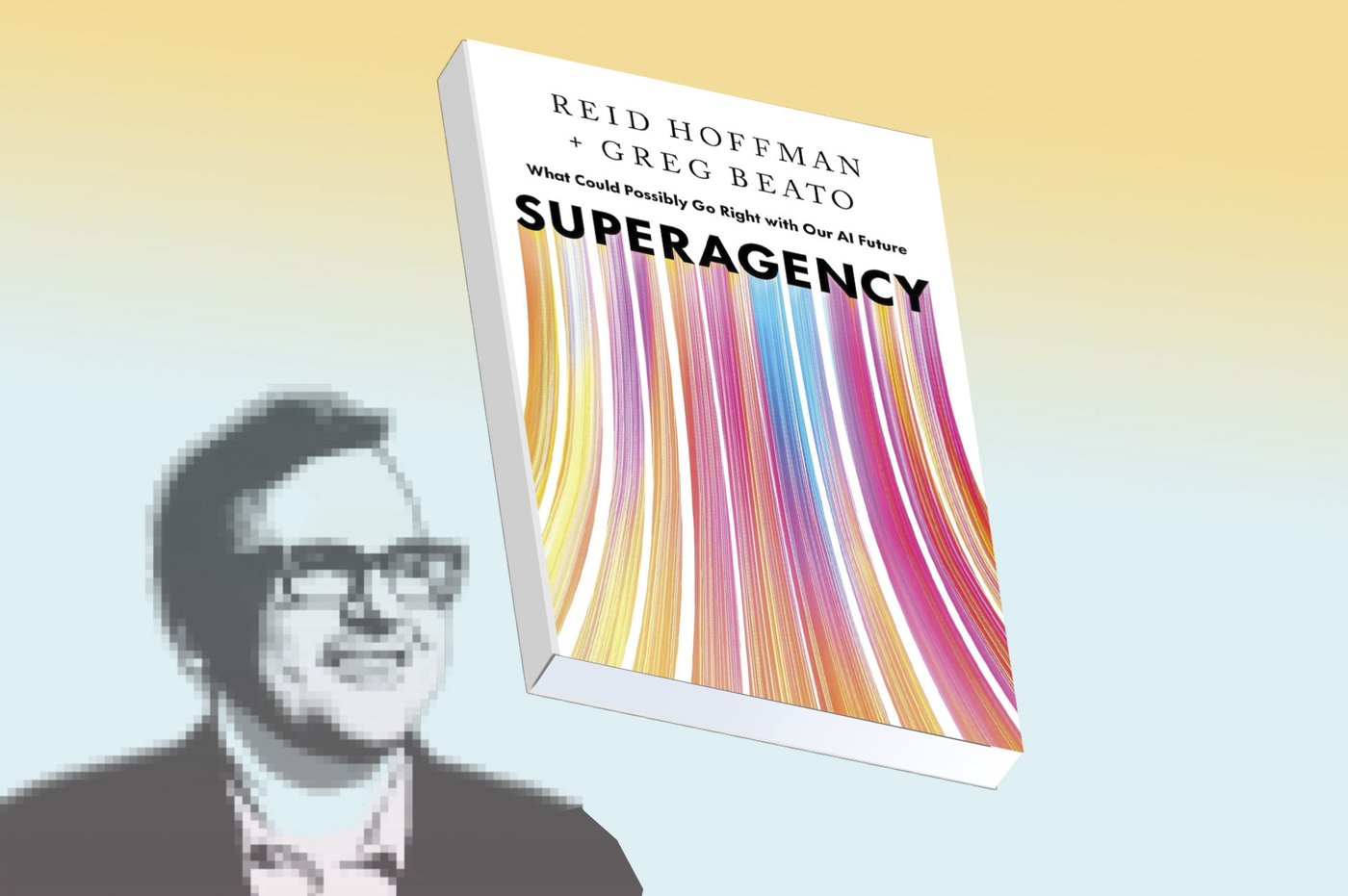- TECHSWU
- Posts
- TECHSWU
TECHSWU


Exciting news for foldable phone fans! The much-anticipated Samsung Galaxy Z Flip 7 is shaping up to be a stellar upgrade with impressive camera specs. Expected to debut later this year, it will feature a powerful 50-megapixel primary rear camera, a 12-megapixel ultra-wide sensor, and a 10-megapixel selfie shooter, echoing the success of its predecessor, the Z Flip 6.
The new foldable is rumored to have a 6.85-inch main display and a 4-inch cover screen, making it sleek and stylish.
Powered by the new Exynos 2500 chipset, the Z Flip 7 could also see the launch of a budget-friendly Galaxy Z Flip FE alongside it. Despite production cuts due to slow sales, this upcoming release promises to be another stunning addition to Samsung's foldable lineup.


LinkedIn founder Reid Hoffman shines a light on the promising future of artificial intelligence, advocating for a constructive perspective amidst rising concerns about the technology's potential threats. In a recent interview, Hoffman shared insights from his new book "Superagency," where he argues that AI can enhance human decision-making and well-being rather than undermine it.
He acknowledges that while some may form closer bonds with AI, such as Inflection's Pi, responsible design can encourage healthier social interactions. On the political front, Hoffman expresses cautious optimism regarding the tech landscape under the Trump administration, hoping for reduced regulations to foster innovation.
Despite differing views on AI's risks among industry leaders, he emphasizes the importance of proactive navigation to harness its benefits. Hoffman’s optimistic outlook invites us to envision a future where AI serves humanity positively, embracing its role in our evolution.
/

Exciting advancements in solar technology are on the horizon! Researchers from the Fraunhofer Society have unveiled perovskite–silicon tandem solar cells, promising to revolutionize the solar energy landscape. After years of collaborative research, these new cells boast an impressive efficiency rate of 31.
6%, thanks to innovative materials made from the perovskite mineral. This breakthrough not only enhances energy conversion but also introduces a scalable and sustainable production process.
The potential for widespread manufacturing of small-sized, high-efficiency solar cells could significantly boost renewable energy efforts across Europe. While concerns about lead levels in perovskite are being addressed, researchers are investigating non-toxic alternatives and recycling methods, ensuring a greener future.

Chinese start-up DeepSeek is turning heads in the AI industry with its release of the DeepSeek-R1 model, a competitor to giants like OpenAI and Google, all while utilizing significantly fewer resources and operating on an open-source framework. This bold move has sent shockwaves through Silicon Valley, contributing to a staggering $590 billion loss in market valuation across tech firms, including a notable 16.
86% drop in Nvidia's stock. Investors are visibly rattled, as DeepSeek's innovative approach is likened to historical moments of technological disruption, prompting venture capitalists to draw comparisons to the 1957 launch of Sputnik.
The emergence of DeepSeek not only highlights the fierce competition in the AI sector but also raises questions about the stability of valuations in a market perceived as increasingly bubble-like. As the dust settles, the potential of DeepSeek could redefine the landscape of artificial intelligence development.

In a bold move to revolutionize humanoid robotics, 1X has acquired the startup Kind Humanoid, merging their expertise to fast-track the development of advanced humanoid robots. This collaboration promises to create robots capable of living and learning alongside humans, ultimately increasing labor opportunities.
Bernt Bornich, CEO of 1X, emphasized that this partnership will accelerate the vision of a world enriched with humanoid technology. Meanwhile, Christoph Kohstall, CEO of Kind Humanoid, highlighted the potential for their creations to genuinely connect with people and make meaningful contributions, especially in fields like healthcare.
With recent backing of $100 million in Series B funding, 1X aims to launch its second-generation android, NEO, poised for both home and industrial applications. As the robotics landscape heats up, this strategic alliance signals an exciting leap into a future where humanoid robots could transform everyday life.

A groundbreaking study from the National University of Singapore and Rostock University Medical Center unveils the promising role of AI tools in enhancing aging interventions and personalized health recommendations. As research into aging generates vast data, these AI systems, particularly Large Language Models (LLMs), can streamline evaluations of treatments, dietary changes, and exercises for safety and effectiveness.
The researchers identified eight essential criteria for AI assessments, ensuring clarity, accuracy, and reproducibility. By following these guidelines, AI successfully provided nuanced insights into potential longevity treatments, such as rapamycin, highlighting both benefits and possible side effects.
The implications are profound; tailored health recommendations could soon revolutionize how we approach aging, making interventions not only safer but more effective for individuals. Moving forward, the team is focused on validating AI-driven evaluations to further refine health outcomes as we age, emphasizing the importance of cross-disciplinary collaboration in this exciting frontier of medical research.